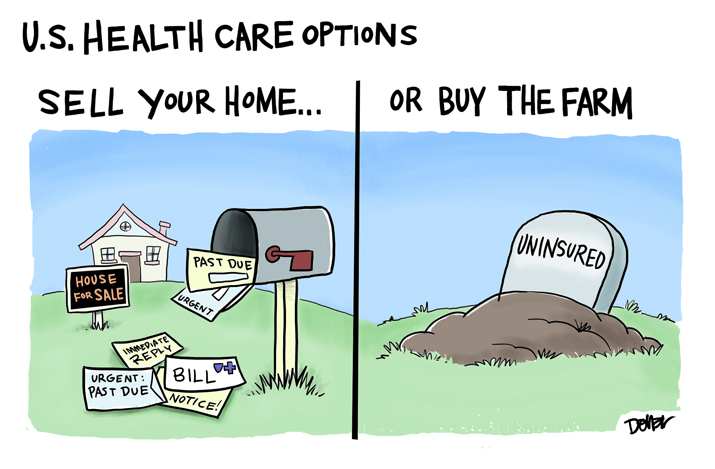 If you've stumbled across this blog and don't already know that the three main causes of oppression are organised religion, private enterprise and the state, welcome to planet Earth. Please, come in. Can I get you a cup of tea?
If you've stumbled across this blog and don't already know that the three main causes of oppression are organised religion, private enterprise and the state, welcome to planet Earth. Please, come in. Can I get you a cup of tea?Whenever we've had our liberties trampled it's almost certain to have been under the boot of one of these three dodgy looking characters. The only example I can think of that doesn't (always) involve at least one of them is domestic/familial abuse. And if you are being abused by your partner or a family member the answer is simple: Walk the fuck away and never look back. You can give them all the love in the world but they are broken and therefore incapable of loving you back in a healthy way. Why so few people manage to grasp this is beyond me frankly.
And isn't it the same with these other purveyors of abusive behaviour? Very few of us even try to walk away from religions that oppress women, from private enterprises that oppress the poor, from governments that impede our civil liberties and fundamental human rights. Why? Because like in all controlling and abusive relationships we've been sold a line; we need them, we'd never survive in the big scary world without them, no-one else can provide for us and protect us like they can. Sound familiar?
And the scary part is that we've been under the shadow of these three for so long that we really haven't got the means to support ourselves en masse without them anymore. It's all very well saying it's time to 'man up', pack our bags and walk out of the door. But walk into what? How would we survive?
So revolution is out then. We would be unwise to try for our 'Winter Palace' moment in Britain in the 21st century. As romantic a notion as it is to just overthrow the status quo, we'd simply be left with a vacuum, which would undoubtedly be filled with opportunists, crooks and charlatans.
The only chance we've got then is evolution. A new society that can be built from within the old, and we already have the seeds. Every cooperative and mutual society is already operating along the lines of anarchist principles (although not many people seem to know it) and they now make up a sizable chunk of the insurance and financial services markets. They compete and win in markets dominated by starkly capitalist principles, yet offer a glimpse of a more egalitarian future where the spoils of enterprise can be more equally distributed than would ever be sanctioned by their privately owned counterparts.
And as I wrote in my last post, not only is it possible to build a universal health care system on anarchist principles that's more efficient than a state controlled one like the NHS, but it looks likely that the Americans will adopt such a system in the very near future. The Germans of course have been using a similar system for years.
Becoming attuned to the kinds of anarchist system already in place helps us to counter the out and out lies fed to us from our abusive trio that they are the only ones who can help us. These alternative systems aren't some weirdy beardy communist jibber jabber, these are modern sophisticated business models used in big, grown up countries to do serious stuff like providing universal health care.
So how can you become more 'anarchic' today? Well, I guess you could go into work and overthrow the boss, sharing his company out equally between you and all your work mates like some 1930's Spanish peasant. But what about switching your current account to the Co-op Bank instead? Or swapping your insurance to NFU Mutual? Or doing your shopping at the Co-op rather than Tesco's?
It's your choice. You can choose to take power back from those 'big three' and anarchism at it's core is about just that - people regaining control over their own lives. And this doesn't mean grabbing a gun or a pitchfork like it used to. It's the same principle that attracted us all to democracy and why so many refuse to accept that democracy has failed. We've been lied to for so long that most people actually believe that democracy or guns and pitchforks are our only two options. How many times have you heard people say "democracy might not be perfect, but it's the best we've got?"
Well that might have been true, or at least less demonstrably false in those halcyon days (if indeed they ever really existed at all) of moral (rather than career) politics, or in the days before the supreme influence of the press on public opinion, or before the lies and the cheating and the stealing and the killing that lead to the electorate's wholesale disenfranchisement from the political system. Whatever, it ain't any more.
But I digress, the point here is supposed to be simple and positive one. Namely that by supporting the cooperatives and mutual or 'friendly' societies that already exist and encouraging new ones to fill in the gaps in other areas of society, we start to build a highly organised, egalitarian 21st century community that will simply leave existing autocratic institutions irrelevant and sidelined. We can all be a part of it simply by the choosing the organisational types we support, and those we don't. It might not be as dramatic as a revolution, but it's a pretty exciting glimpse into the near future don't you think?





